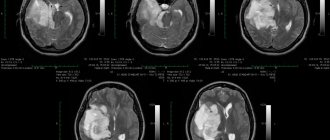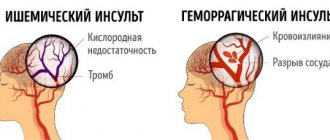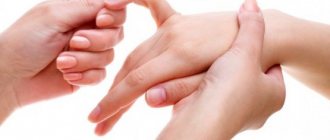The question of whether it is possible to drink alcoholic beverages after a stroke interests many patients. A stroke is an acute disorder of blood circulation in the brain, which is accompanied by pronounced symptoms and causes serious damage to the human brain. The possibility of drinking alcohol during the rehabilitation period can be determined by a neurologist during a consultation. At the Yusupov Hospital you can consult a neurologist and undergo a full examination. Qualified neurologists treat patients, rehabilitation doctors help people restore lost functions after a stroke.
Alcohol and stroke: what is the connection?
Alcoholic drinks have been consumed by people for a long time, but they cannot lead to a stroke. The harmful effect is on the liver, but not on the blood vessels. On the contrary, it is its complete absence that can disrupt the usual way of life, causing irreparable damage to the brain.
The main thing is to follow the basic rules. They say that consuming a small, minimal amount of alcohol is even beneficial. In this case, its effect will not be harmful, but, on the contrary, will support the cardiovascular system. So a direct connection between stroke and alcohol-containing drinks has not been identified.
Symptoms of alcoholic stroke
The first signs are lost against the background of withdrawal or intoxication. This condition is called an erased form of alcoholic stroke. Headache, dizziness and nausea do not cause suspicion during this period. But if you suddenly experience severe weakness, increased pain, or vomiting, you should be wary. The manifestations are identical in women and men, at the same time they are accompanied by the following signs of the clinical picture:
- unilateral numbness of the face and limbs;
- vascular cephalgia not controlled by medication;
- lack of coordination, uncertainty of movements, unsteady gait;
- constant weakness and nausea;
- confusion, incoherent slurred speech;
- autonomic disorders - hot flashes, sweating, dry mouth, tachycardia.
The person does not understand and is unable to explain his condition. Loses contact with reality, ceases to navigate in time, makes incomprehensible movements and actions. Sudden mood swings are possible. Such clinical manifestations cannot be ignored.
The severity of stroke symptoms after heavy drinking and the severity of the pathological condition directly depend on the degree and location of the blood flow disturbance, as well as the area of the brain in which it occurred. If at this moment there is no sober person nearby, and those around you are also drunk and cannot provide primary assistance or call a doctor, severe brain disorders develop. Late treatment reduces the positive prognosis and the likelihood of recovery with minimal consequences.
What alcohol will help the body?
When talking about the dangers of alcohol, people often forget that the main cause of stroke is increased intracranial pressure. It's time to forget about this and turn to traditional medicine.
It may not be promoted by doctors, but it remains effective and useful. First you need to figure out what kind of alcohol will be useful?
- Cognac;
- Red wine.
Cognac is the most healthy drink. Only its daily amount should be limited to 50 grams. This is enough to enhance brain activity and equalize pressure, so there will be no consequences.
Red wine is a good stimulant for the heart muscle. It provides irreplaceable support, supplementing the blood with useful substances. Its maximum daily amount should be limited to 150 grams. Only it should be a dry variety, not a semi-sweet one.
If a person purchases alcohol to maintain health, one should not save money. Any surrogate, even in small doses, entails a detrimental effect on the body. It's better to spend a little more money and get real daily help as a result.
Causes
Long-term consumption of alcoholic beverages causes microdamage to the vascular walls, during the restoration of which connective tissue grows and microaneurysms form, thereby reducing elasticity. Increased blood pressure and increased heart rate cause an increase in the volume of blood passed through. Damaged vessel walls are not able to adequately respond to stretching, so rupture and local hemorrhage occur. The surrounding tissues suffer from hypoxia, and massive death of neurons in the affected area occurs. The formed hematoma puts pressure on neighboring structures, causing even greater damage.
There are two pathological types of acute cerebral circulatory disorders:
- hemorrhagic, occurring as a result of rupture of the vascular wall;
- ischemic, occurring due to blockage of a vessel or severe vasospasm, as a result of which the flow of blood to any part of the brain stops.
The condition is preceded by TIA (transient ischemic attacks) - short-term disturbances in brain nutrition, often the first signs of a stroke after heavy drinking. With prolonged toxic effects of alcohol, the body's compensatory capabilities are reduced. The condition after an alcoholic stroke is much more severe than in patients who did not drink alcohol.
Is it possible to drink alcohol after a stroke?
Having dealt with the causes of a stroke, it is worth moving on to its consequences. Now they are being well treated, and rehabilitation courses are based on the use of modern techniques. Only even they do not always give results quickly, but at the same time they contain a lot of important nuances:
- Mandatory diet;
- Elimination of alcohol;
- Walking in the air.
After an attack, a person’s life changes completely. Some begin to take their own health more seriously, while others stop thinking about it. It is better to consider each point in detail to assess the rehabilitation period.
Mandatory diet
The rehabilitation period usually lasts for a year. At this time, the person will have to follow a strict diet, helping the body regain strength after a serious shock. No, doctors do not completely prohibit foods, but they require the addition of new dishes to the diet:
- Vegetables;
- Fruits;
- Seafood.
People don't always prefer them. Usually they prefer to opt for fatty and fried meat or delicious buns. It's time to give up all this if you don't want to face serious heart disease in the near future.
Alcohol exclusion
When considering the diet, doctors pay special attention to alcohol-containing drinks. They are strictly prohibited, since changes in pressure during the rehabilitation period are unacceptable. No, some people are still willing to take risks, but they should seriously think about their own step. What drinks do experts recommend?
- Pure water;
- Compotes;
- Natural juices;
- Cocoa.
These drinks do not affect blood flow, so patients in sanatoriums drink them without restrictions. Even tea or coffee negatively affects the cardiovascular system. This fact has long been confirmed by research, so experts point it out without fail.
Walking in the air
Having suffered a stroke will require gradual recovery of the body. For this reason, former patients also have to exclude serious physical activity. In practice, this can be solved in several ways that do not require much time.
If the rehabilitation period is carried out in a special center, the person will be offered courses of therapeutic exercises. It helps to gradually restore muscles, with virtually no stress on them. This approach guarantees a simple and reliable solution, because it is not always possible to cope with the consequences of an attack without problems.
When people refuse to stay in such institutions, walks in nature are chosen as an alternative. On the one hand, they force you to spend time in the fresh air, and on the other, they provide minimal stress on various muscle groups. As a result, a person recovers much faster.
Content:
- Symptoms of alcoholic stroke
- Causes
- Stages of treatment
- Staying in hospital
- Rehabilitation therapy
- Forecasts
Alcoholism causes multiple diseases of internal organs. One of the frequently observed pathologies is impaired cerebral circulation against the background of high blood pressure caused by prolonged alcohol abuse. Alcoholic hemorrhagic stroke occurs after heavy drinking or during a period of alcoholic excess. From the moment the first signs appear, the patient’s condition may improve for some time, but without timely treatment, a sharp deterioration soon follows. Therefore, it is extremely important to recognize the disease in time and literally immediately seek medical help.
Is it possible to drink alcohol after a stroke after rehabilitation?
After the end of the rehabilitation period, the question arises again whether it is possible to drink alcohol after a stroke. Practice shows that a year's period is sufficient to restore the body, but there is no need to immediately return to all bad habits. Yes, a person wants to return to normal life again and pick up a glass of wine on a holiday. Don't think about it until official permission.
The end of the rehabilitation period allows a person to give up a nutritious diet, although almost no one does this. After a stroke, you no longer want to deal with serious illnesses again, so patients prefer to take care of themselves.
Doctors speak unequivocally about alcohol. They demand to completely stop using it, which is directly related to the unpredictability of changes in intracranial pressure. You shouldn’t tempt fate and test your body’s strength, because one day it may not be able to withstand the load.
If we turn to traditional medicine again, we can get a different answer. She says that some types of alcoholic beverages remain a necessity. Only taking them allows you to re-strengthen the heart muscle to avoid relapse. There are no official data, but statistics well confirm these words.
Stages of treatment
If signs of a stroke are detected during or after binge drinking, first aid is as follows:
- call an emergency ambulance;
- avoid further drinking of alcohol;
- calm the victim and limit his movements by placing him in bed until the doctors arrive.
To preserve the integrity of the clinical picture, it is prohibited to give any medications, force someone to drink water, or bring a person to his senses by braking or patting the cheeks. The condition of an acute stroke poses a threat to a person’s life and requires immediate medical, sometimes resuscitation, care.
Alcohol after a stroke: expert opinion
Cardiologists are constantly fighting for the health of the nation. In recent years, the average age of stroke has decreased, which shows the failure of convincing the population. People continue to mistreat their own health, step by step moving towards an attack. If the topic of alcohol comes up, doctors usually immediately divide into two groups. It is their opinion that is worth considering.
Red wine and cognac in small quantities are beneficial. This has been proven by studies that have shown beneficial improvements in blood circulation in the brain. This nuance turns out to be the ideal moment for patients to relax and begin to lead a wild lifestyle, but they should carefully monitor the amount.
Any alcohol harms the body, gradually leading to degradation of consciousness. A stroke in such cases is a hidden consequence of harmful effects.
Rehabilitation therapy
After stabilization of the pathological condition and improvement, the patient is prescribed restorative drug treatment, a course of massage and physical therapy, physiotherapeutic procedures, dietary nutrition and adherence to a daily routine. To regain speech, regular classes with a speech therapist-defectologist are necessary.
They use drugs to normalize the functions of the nervous system - Cerebrolysin, Glycine, Piracetam and a complex of vitamins and minerals. If depression and sleep disorders occur, antidepressants are indicated.
When alcohol is completely prohibited
If in some cases you can drink alcoholic beverages in limited quantities, then there are situations when drinking is strictly prohibited. Especially if a person has suffered a stroke in any form. When drinking is strictly prohibited:
If you are taking medications. There are very few drugs that are compatible with ethyl alcohol. Combining medications with alcohol provokes serious health problems. For example, when combined with ascorbic acid, blood clots form.
The body has not yet recovered. In this condition, even a small dose of an alcoholic drink can lead to a recurrence of the attack or death.
Alcohol addiction. Alcohol abuse is a common cause of stroke. If the patient has an addiction, then he should not take alcohol into his mouth at all, and avoid it in any way. Because alcoholics are unable to adhere to the norm
If you drink after a stroke, complications develop very quickly. Therefore, it is important to strictly follow the dosage. Because ethyl alcohol contained in drinks affects an organism affected by a stroke two to three times more powerfully. After an attack, it is more difficult for a person to maintain control and understand that intoxication has already set in. He can't stop. After this, a critical situation may arise, and it may be impossible to save the patient or the consequences will be even more difficult.
How does alcohol affect the brain?
The human brain is a complex neural structure, all areas of which are closely interconnected. All of them are responsible for the coordination of movements, for the transmission of information, and for the functioning of internal organs. The normal functioning of brain cells allows people to express their thoughts and feelings, communicate, and remember information.
Regardless of what a person drinks - beer, vodka or cognac, ethyl alcohol enters the body. The harmful substance instantly affects all areas of the brain, leading to the following changes:
- The level of thinking decreases.
- Lost control over movements.
- Drowsiness appears.
- Consciousness becomes cloudy.
- Speech is confused.
Regular drinking causes the addict to become lethargic, develop insomnia, and experience frequent outbursts of aggression. There are frequent cases of the development of mental disorders.
Cardiovascular health: how to take care of it
The heart has no days off or holidays. The organ works smoothly in any circumstances, and always needs all possible support. Regardless of whether there are obvious heart problems or they are not yet felt, you need to take care of the main engine constantly.
Give up alcohol and cigarettes forever. The most destructive effect of alcohol on the heart and blood vessels occurs as a result of a combination of these two bad habits. Nicotine excessively constricts blood vessels, creating oxygen starvation; alcohol, on the contrary, dilates blood arteries, making them fragile. If an alcoholic smokes more than 3 cigarettes a day, the likelihood of a stroke or heart attack increases 3 times than if he simply abused alcohol. But both habits are deadly separately.
Watch your weight. Overweight people are always at risk. Fat that envelops internal organs is the most dangerous: unlike subcutaneous fat, it is almost impossible to eliminate. In such cases, myocardial dysfunction occurs much more often. Running, walking, swimming and cycling can help you lose weight, but the permissible load should only be determined by a specialist.
Review your diet:
- Replace pork and lard with beef and poultry.
- Drink no more than 1.5 liters of clean water per day so as not to cause swelling.
- Remove canned food from your diet and do not exceed the daily salt intake - 5 grams.
- Limit your coffee intake or eliminate it completely.
- Apples, dark grapes, plums, strawberries, garlic, flax seeds, grape seeds, arugula, onions, asparagus, nuts, honey and fatty fish are those foods that are good for blood vessels and the heart, which should be included in the diet regularly or as often as possible .
The harm of alcohol and its harmful effects on the heart and blood vessels is difficult to exaggerate. But there is no benefit, even conditional, from alcoholic drinks. And if a young body can somehow resist the threat, then after 40 years the consequences of drinking alcohol can cost one’s life.
Effect of alcohol on memory
Alcoholic drinks negatively affect memory. A person may experience short-term memory lapses, as well as complete memory loss while drinking. The next day, the addict may forget absolutely everything he did, although his drinking buddies say that he was awake. Under the influence of ethanol, the memory function of the brain changes. Ethanol is a powerful toxin, and if the brain is severely intoxicated, it can change the type of synoptic transmission. Therefore, the brain simply stops working normally.
The effect of alcohol on the nervous system
Alcoholic drinks affect the functioning of the central nervous system in two ways:
- Penetrates nerve cells and affects receptors and ion channels.
- Activates the functioning of certain brain receptors.
When drinking alcohol, the nervous system is in an excited state. Ethanol stimulates the release of dopamine, which increases activity and gives a person a feeling of euphoria. After resources are depleted, the opposite effect occurs - weakness, depression, and poor health appear.
How many brain cells does 100 grams of vodka kill?
When consumed, alcohol immediately enters the bloodstream and reaches the brain within 5 minutes. The first effect of euphoria occurs due to the release of endorphins, so the person begins to feel happy and sociable. Alcohol does not kill brain cells, but it does have short- and long-term effects on them. If you drink 100 grams of vodka, 8,000 nerve cells will be damaged.
By-effect
Renal and hepatic failure. In this case, immunity decreases, muscle paresis of varying degrees of severity, blood vessels begin to work poorly and the risk of relapse increases.
Mental disorders. The person begins to lose control, stops following the regime, diet, and taking medications. He will begin to become depressed and experience negative emotions. In extreme cases, seeing hallucinations
Epilepsy attacks. It is possible that under the influence of alcohol a person will have an epileptic seizure, which will provoke a new stroke attack.
The possibility of relapse increases to 75% when drinking alcohol in any dosage. Although if the patient feels normal, then you can drink strong drinks strictly according to the prescribed regimen. But the use of ethyl alcohol and the occurrence of stroke are closely related, so it is recommended to completely eliminate alcohol from your life. In this case, the possibility of recovery increases many times, and the person will be able to lead a more productive and long life.
Red wine
Red wine is an alcoholic drink produced using a certain technology from dark grape varieties. Usually red or blue-black. Red wines have a vibrant color that ranges from bright red to burgundy. In the production of red wine, a method is used to ensure the transfer of anthocyanins from the skin to the must. Red wine has a tart, spicy primary aroma of grapes. The taste of different varieties of wine differs not only due to the grape variety from which it is made, but also due to different production technologies. Connoisseurs and true connoisseurs of red wine admire its velvety and noble taste, wonderful and delicate aroma, rich and refined aftertaste. A good wine must be aged for a certain amount of time to become a gourmet's dream. There are many divisions of red wines: by sugar content, by aging period, by quality, by carbon dioxide content. Almost 4.5 thousand different varieties and types of red wine are known in the world. Wine is used in cooking and medicine (in small doses, of course).
The benefits and harms of red wine
Red wine has beneficial properties. Its benefits are due to the content of strong antioxidants, which are rich in the skin and seeds of grapes. In addition, red wine contains almost the entire vitamin B group, many amino acids, tannins and organic acids, sugars and alcohol, micro- and macroelements. Red wine, if consumed in moderation, brings only benefits to the body, but in large and huge quantities it brings only harm. If you drink one glass of high-quality red wine with lunch, you will reduce the risk of developing cardiovascular diseases, the development of atherosclerosis, lower cholesterol levels, and neutralize the effects of fatty foods on various organs.
Treatment with red wine after a stroke is recommended, as it protects the brain from irreversible changes. The ability of red wine to resist the development of cancer cells and the spread of metastases has also been revealed. For older people, red wine helps maintain good spirits, slows down aging, and helps maintain sobriety and clarity of mind longer. It is useful to drink red wine for anemia and gastrointestinal diseases. It perfectly removes unnecessary waste and toxins from the body. Natural dry red wine reduces the formation of blood clots and increases clotting, thanks to the antioxidant resveratrol, which also prevents DNA mutation and protects against the effects of radicals. Drinking wine before bed helps get rid of insomnia, strengthens sleep, and calms the nerves. In the morning, a glass of wine will give you a surge of energy for the whole day. Hot wine with spices and sugar or honey is used to treat colds, flu and other infectious diseases.
The dangers and benefits of red wine are still debated to this day. Any product is useful if consumed in moderation. Drinking wine in unlimited quantities will sooner or later lead to the development of alcoholism, and this is not at all beneficial for our body. Therefore, you should not get carried away with libations. In addition, there is a real opportunity to buy counterfeit and hazardous products that can have a very negative impact on your health. There are several diseases for which drinking wine is strictly prohibited. These include: liver cirrhosis, stomach cancer, osteoporosis, hypertension. Wine should not be given to children, consumed by pregnant and nursing mothers, or by persons taking medications.
Calorie content of red wine
How many calories are in red wine? Different wines have different amounts of calories. Dry red wine has a calorie content of about 60-64 kcal, semi-dry wine contains 70-78 kcal. Semi-sweet red wine has a calorie content of about 88-90 kcal. The most high-calorie sweet wines. Their calorie content reaches 150 or 200 grams in a standard glass.
Hangover and the brain
Ethanol destroys cells and brain vessels within a few hours. This condition is called a hangover. Its symptoms: nausea, vomiting, diarrhea, thirst, dizziness, increased blood pressure, oxygen starvation, general fatigue. The reason for this is toxic damage to the liver by the breakdown product of ethyl alcohol - acetaldehyde.
Another common hangover symptom is depression. It occurs due to the fact that a drunk person is under the influence of dopamine, which is produced by the brain when intoxicated. In the morning, its level decreases and instead of joy and excitement, depression and lethargy come.
Stages of brain damage by alcohol
Alcohol destroys neural connections, due to which there are more and more receiving receptors, and it is more difficult to activate them each time. Brain damage develops in stages and has three stages:
- First . There is a constant desire to drink, the craving for alcohol becomes systematic.
- Average . After drinking alcohol, a severe hangover begins and a strong psychological need for alcohol-containing drinks develops. Diseases of the internal organs begin to develop.
- Heavy . The person degrades, alcoholism becomes chronic.









